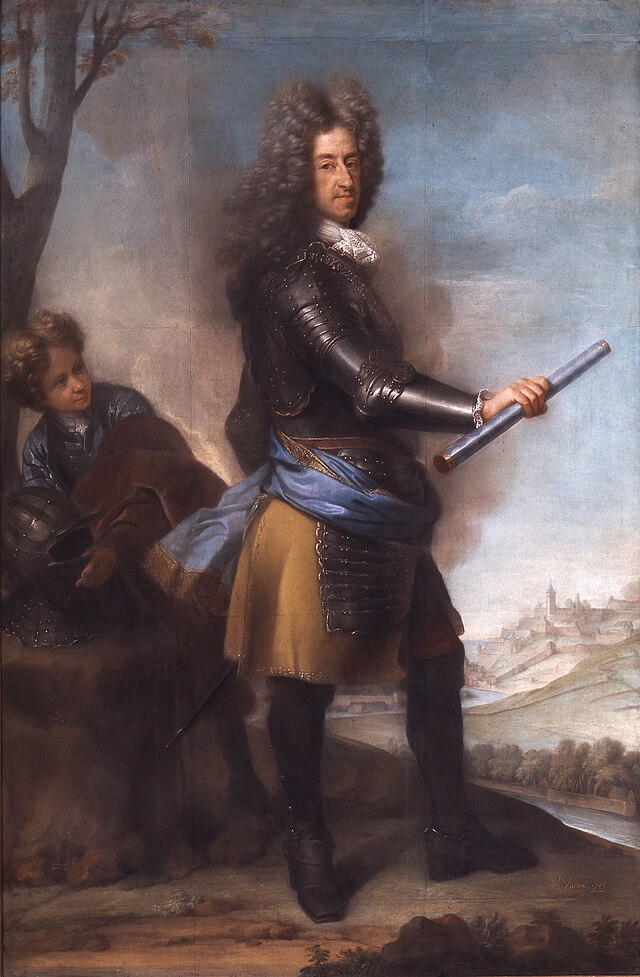Loading AI tools
From Wikipedia, the free encyclopedia
The Bavarian uprising of 1705–1706 (German: Bayerische Volkserhebung, "Bavarian people's uprising") was a revolt against the occupation of the Electorate of Bavaria by the Imperial Army of the Habsburg Monarchy during the War of the Spanish Succession (1701–1714). It lasted from early November 1705 to 18 January 1706, approximately 75 days. Henric L. Wuermeling speaks of this as "the first revolution of modern history."
| Bavarian People's uprising | |||||||
|---|---|---|---|---|---|---|---|
| Part of War of the Spanish Succession | |||||||
 The 1705 Slaughter of the Sendling Farmers, detail from the fresco by William Lindenschmit the Elder on the Old Parish Church of St. Margaret. | |||||||
| |||||||
| Belligerents | |||||||
| Bavarian Peasants | Habsburg monarchy | ||||||
| Casualties and losses | |||||||
| c. 5,100 | c. 40 + a small unknown number | ||||||
By the outbreak of the War of the Spanish Succession in 1701, Maximilian II Emanuel, Elector of Bavaria had developed a plan for the House of Wittelsbach to supplant the House of Habsburg as Holy Roman Emperor. Allying himself with the French against the Habsburgs, his plans were frustrated by the disastrous defeat at the Battle of Blenheim in 1704. Following his defeat, he evacuated his court to the (French occupied) Spanish Netherlands and left Bavaria to the victorious Austrians. While Bavaria was occupied by troops of Emperor Joseph I, the Bavarian people rose up against the Imperial occupation.

The popular uprising included large areas of Lower Bavaria, the Innviertel and eastern Bavaria. The lands adjoining towns and strongholds were captured by the rebels and the peasant uprising spread to the Bavarian Forest, parts of the Upper Palatinate and Kelheim on the Danube. A Braunau Parliament meeting was held in December 1705 in the then-Bavarian Braunau. Long before the French Revolution and early German parliamentarianism the meeting was held on 21 December 1705 in an inn belonging to the Baron von Paumgarten; representatives met of the four estates in Bavaria: aristocracy, clergy, burghers and peasants. The Braunau Parliament (Braunauer Parliament) is the name of the congress on the defence of the state of Bavaria held at Braunau am Inn convened on 21 December 1705.
Following the initial uprising in November 1705, there was little response from the Austrians for nearly two months. However, that changed following an attempt by the rebels to capture the Bavarian capital, Munich. Following their unsuccessful attack, the night of 25 December 1705 saw an Austrian column encounter the peasant army near Sendling outside of Munich. The battle was known as Sendling's Night of Murder (German: Sendlinger Mordweihnacht) or the Sendling Christmas Day Massacre. The insurgents from the Bavarian Oberland were defeated and completely routed by Emperor Joseph I's troops. The number of deaths on the Bavarian side in this battle is estimated at around 1,100 men, but the Austrians lost only about 40. Some of the insurgents were killed after they had already surrendered. About two weeks later, on 8 January 1706, the Battle of Aidenbach ended with the utter defeat of the insurgents and about 4,000 casualties on the Bavarian side. That led to the collapse of the uprising against Austria.
On 11 January 1706, a delegation from the insurrection traveled to Salzburg for peace negotiations. The delegation included Mayor Dürnhardt, Freiherr von Paumgarten and von Prielmayr, Mayor Georg Ludwig Harter of Burghausen and the farmer Franz Nagelstätter. On 13 January 1706 the city of Schärding surrendered, followed on the 16th by Cham, on the 17th by Braunau and on the 18th, the last city, Burghausen surrendered.

A "list of the ringleaders of the peasant uprising" included 15 names or descriptions.
A figure said to having taken part on the side of the Oberland insurgents was a certain Balhtasar Mayr or Balthasar Riesenberger, Smith of Kochel, a popular, legendary folk hero in southern Bavaria ever since. However, his existence - not to speak of any participation - could never be proved. He, so it seems, may have been invented to soothe the pain over the losses and the defeat[citation needed].
The History of Bavaria: From the First Ages, to This Present Year, 1706
Seamless Wikipedia browsing. On steroids.
Every time you click a link to Wikipedia, Wiktionary or Wikiquote in your browser's search results, it will show the modern Wikiwand interface.
Wikiwand extension is a five stars, simple, with minimum permission required to keep your browsing private, safe and transparent.